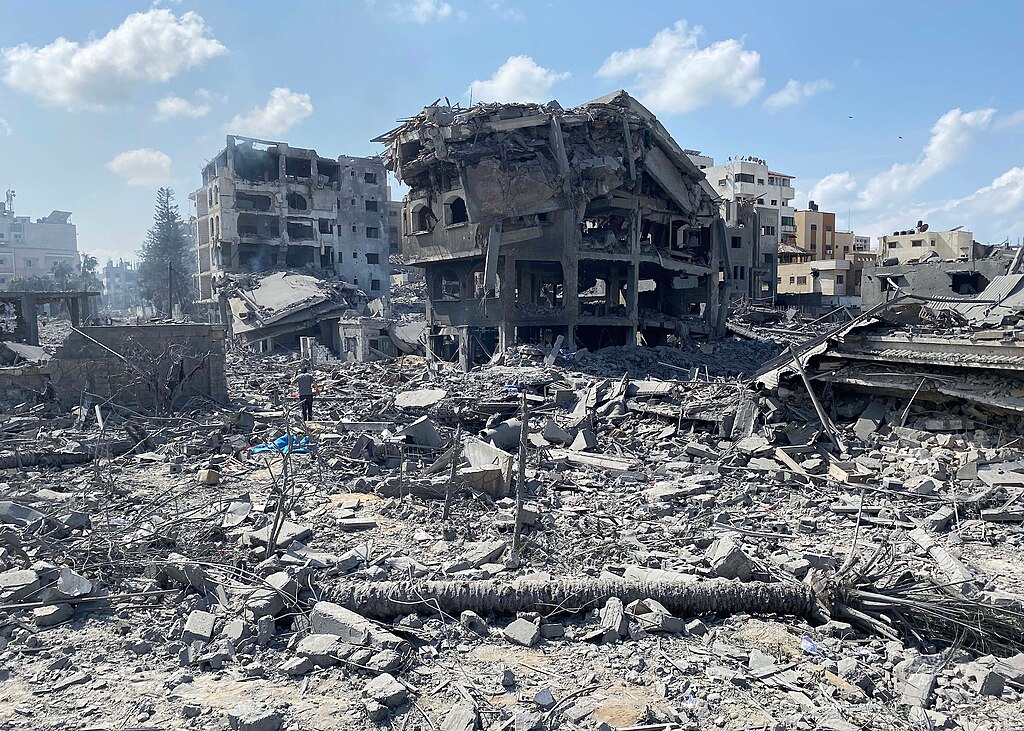Israeli forces opened fire on Palestinian citizens while they were waiting at the Kuwait Roundabout in Gaza city for aid trucks, stocked with flour, killing “dozens” of people.
This is followed by an earlier airstrike today, where Israeli warplanes attacked a truck carrying humanitarian aid in Deir al-Balah in the Gaza strip, killing at least nine people.
A witness told Al Jazeera news that he was walking to a water well on Sunday, when he was suddenly, “showered with missiles, shrapnel flying around, body parts in the air”.
“This truck was carrying relief aid, with civilian volunteers on board. They were carrying food items to displaced Gaza people. It is alleged that Deir el-Balah is a safe zone,” he continued.
Last Thursday, Israeli military tanks stationed on the west of Gaza City opened fire on Palestinians who were waiting near the Nabulsi Roundabout for humanitarian aid trucks to arrive, with 117 killed and hundreds more injured.
A similar assault occurred again yesterday, where one Palestinian died, and 26 were injured.
?New Video Shows Israeli Tanks Firing at Palestinians Looking For Humanitarian AID.#FreePalesine #Iran #Yemen #GazaMassacare pic.twitter.com/Kt03r1ljYH
— Hizbullah Fateh (@Hizbullah_Fateh) February 27, 2024
There was no immediate response from the Israeli military.
“It seems that the Israeli military is right now targeting people who are waiting desperately for food, for anything, to survive,” said a Al Jazeera journalist, Tareq Abu Azzoum, reporting from Rafah.
The attacks came following a statement from Gaza’s Health Ministry that stated at least 15 children have died at the Kamal Adwan Hospital in the last few days from malnutrition and dehydration.
The United Nations Children’s Fund, UNICEF, said that more children in Gaza will die unless there is a direct solution to ensure aid.
“Now, the child deaths we feared are here and are likely to rapidly increase unless the war ends and obstacles to humanitarian relief are immediately resolved,” UNICEF’s district director for MENA, Adele Khodr wrote in a statement.
Amid the unrelenting attacks of violence, negotiations over a potential ceasefire and hostage release agreement between Israel and Hamas resumed on Sunday, but there has been no breakthrough despite pressure from President’s Biden’s administration.
Meerav Ben Ari, an Israeli opposition politician, told CBS News if a deal isn’t in place before next week, when the Muslim Holy month of Ramadan begins, it could increase tensions not only in Gaza and Israeli, but also across the Middle East.






